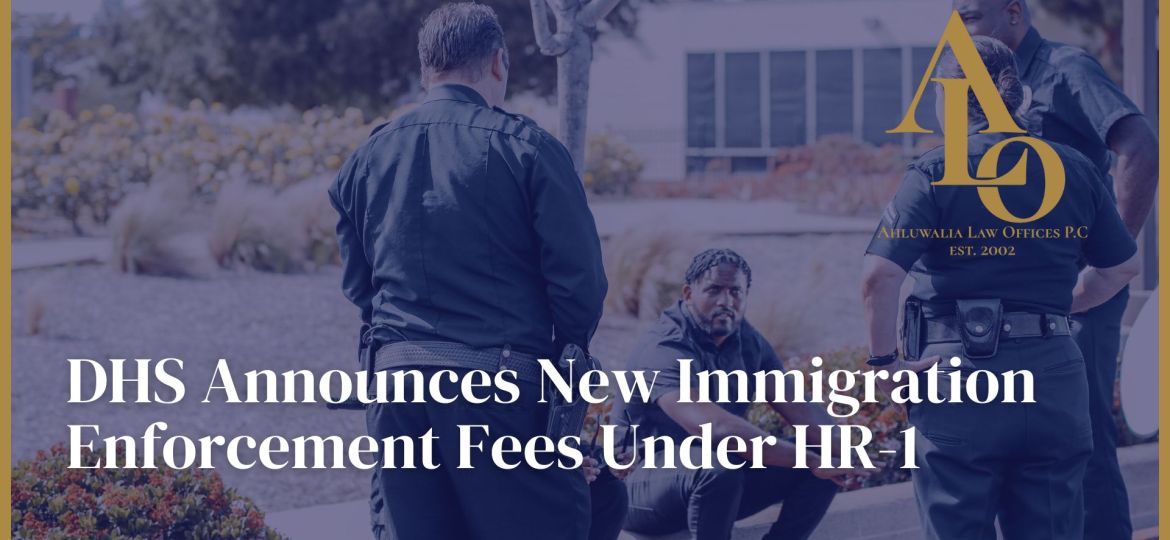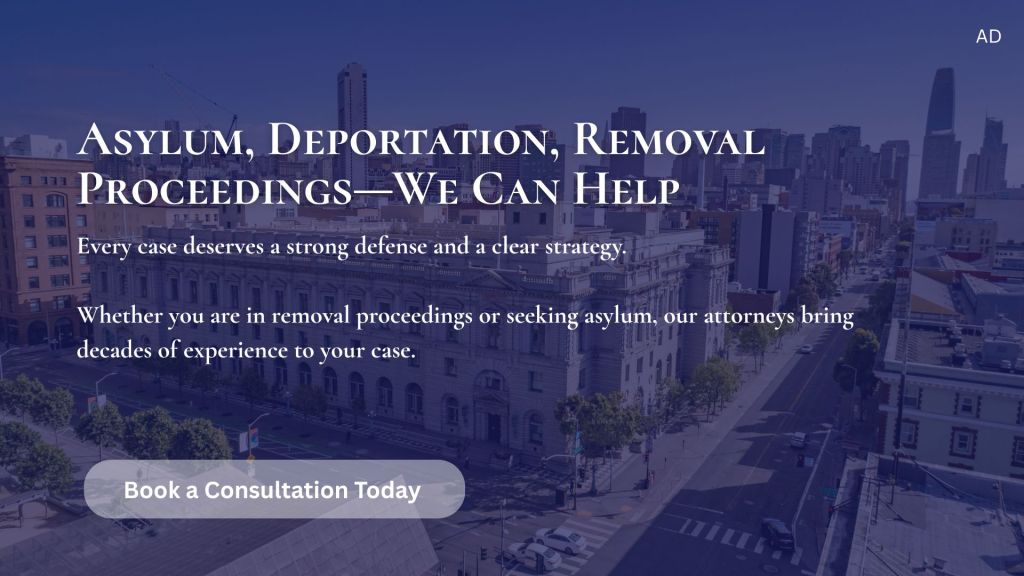
On September 8, 2025, the Department of Homeland Security (DHS) began implementing new immigration enforcement-related fees established under the One Big Beautiful Bill Act (HR-1). These fees, administered by U.S. Immigration and Customs Enforcement (ICE), apply to certain immigration violations and are codified in federal law.
Who Is Subject to the New Fees?
DHS has clarified that the new enforcement fees do not replace existing statutory penalties but are designed to cover agency costs. For Fiscal Year 2025, the fee is set at $5,000 and will increase annually with inflation. Two categories of noncitizens are directly affected:
- Aliens Ordered Removed in Absentia and Arrested by ICE
- If an individual is ordered removed in absentia under Section 240(b)(5) of the Immigration and Nationality Act (INA) and later arrested by ICE, they will be assessed the $5,000 fee.
- The only exception is when the removal order has been rescinded pursuant to INA §240(b)(5)(C). No waivers are available.
- Inadmissible Aliens Apprehended Between Ports of Entry
- Noncitizens apprehended by DHS between official ports of entry and found inadmissible under INA §212 are also subject to the $5,000 fee.
- Grounds of inadmissibility may include entering the U.S. without admission or parole, or entry at an unauthorized location.
Purpose and Compliance
DHS emphasized that these fees are not penalties but cost-recovery measures. They are consistent with U.S. obligations under the 1951 Refugee Convention and the 1967 Refugee Protocol, which prohibit penalizing asylum seekers for unauthorized entry.
Funds collected will be distributed to DHS or the U.S. Treasury, as mandated by statute.
What This Means for Foreign Nationals
- Individuals with pending or past removal proceedings should be aware that failing to attend hearings could result in being classified as removed in absentia, exposing them to this fee if later arrested.
- Those attempting to cross outside official ports of entry may face both inadmissibility findings and the $5,000 enforcement fee.
- DHS will provide individual notice and payment instructions to affected noncitizens.
Conclusion
The introduction of DHS immigration enforcement fees under HR-1 marks a significant development in U.S. immigration enforcement. Foreign nationals, visa holders, and investors in the U.S. should take steps to maintain compliance with immigration procedures, attend all scheduled hearings, and avoid unauthorized entry into the United States.


